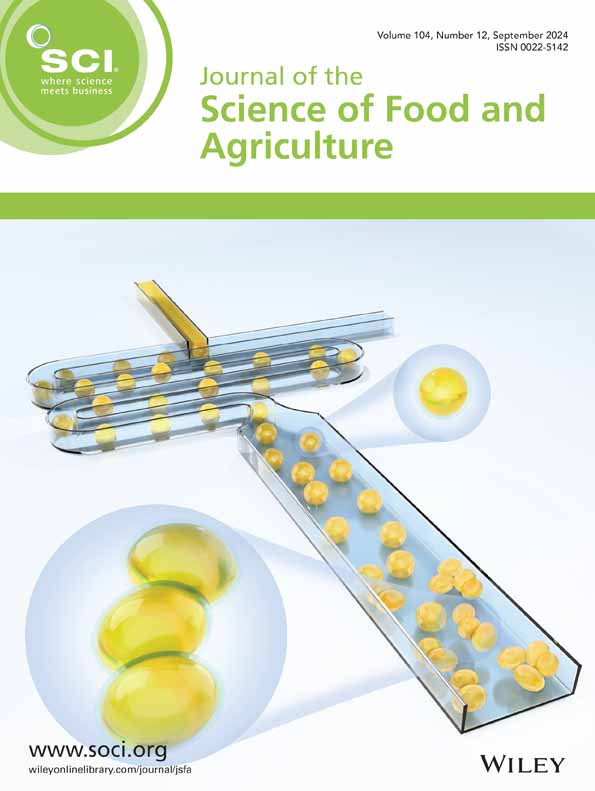Effects of high‐pressure and CaCl2 pretreatments on the salt taste‐enhancing activity of hydrolysate derived from spent hen meat
Abstract
Background: High-sodium intake has been proven to bring serious risks to public health. A potential sodium substitute of salt taste-enhancing hydrolysate (STEH) of protein has been focused on recently. The salt taste-enhancing activity (STEA) of STEH still needs to be improved. High-pressure and calcium chloride (CaCl2) pretreatments were reported to affect proteolysis and promote the release of bioactive peptides. Hence, we investigated effects of high-pressure and CaCl2 pretreatments on hydrolysis and STEA of STEH derived from spent hen.
Results: The pretreatments significantly influenced STEA of spent hen meat hydrolysate (SHH), especially 200?MPa pressure and 80?mmol?L-1 CaCl2 pretreatments increased 27.1% salt taste intensity of SHH compared to that of blank (without pretreatments) according to sensory evaluation, the SHH umami also increased after pretreatments. In SHH, the proportion of peptides 2 pretreatments, especially for CaCl2 in 80?mmol?L-1. The change in particle size distribution of SHH has similar trends to DH.
Conclusion: High-pressure and CaCl2 pretreatments increased STEA of SHH by affecting hydrolysis process. The STEA increase may be related to increased small-peptide proportion in SHH. Meanwhile, moderate high-pressure may promote protein unfolding and further increase DH according to particle size distribution of SHH. The combination of proteolysis and pretreatments of high-pressure and CaCl2 is a promising method to produce STEH. ? 2024 Society of Chemical Industry.





